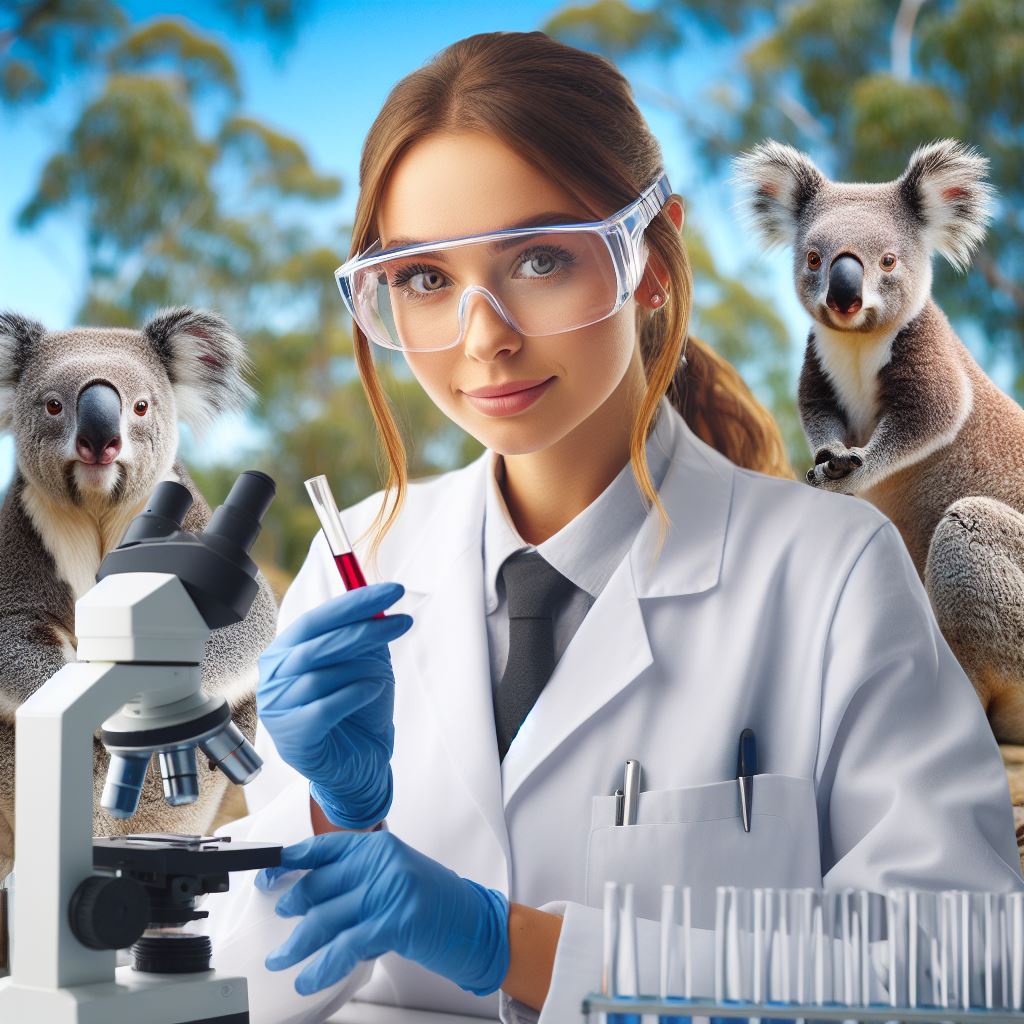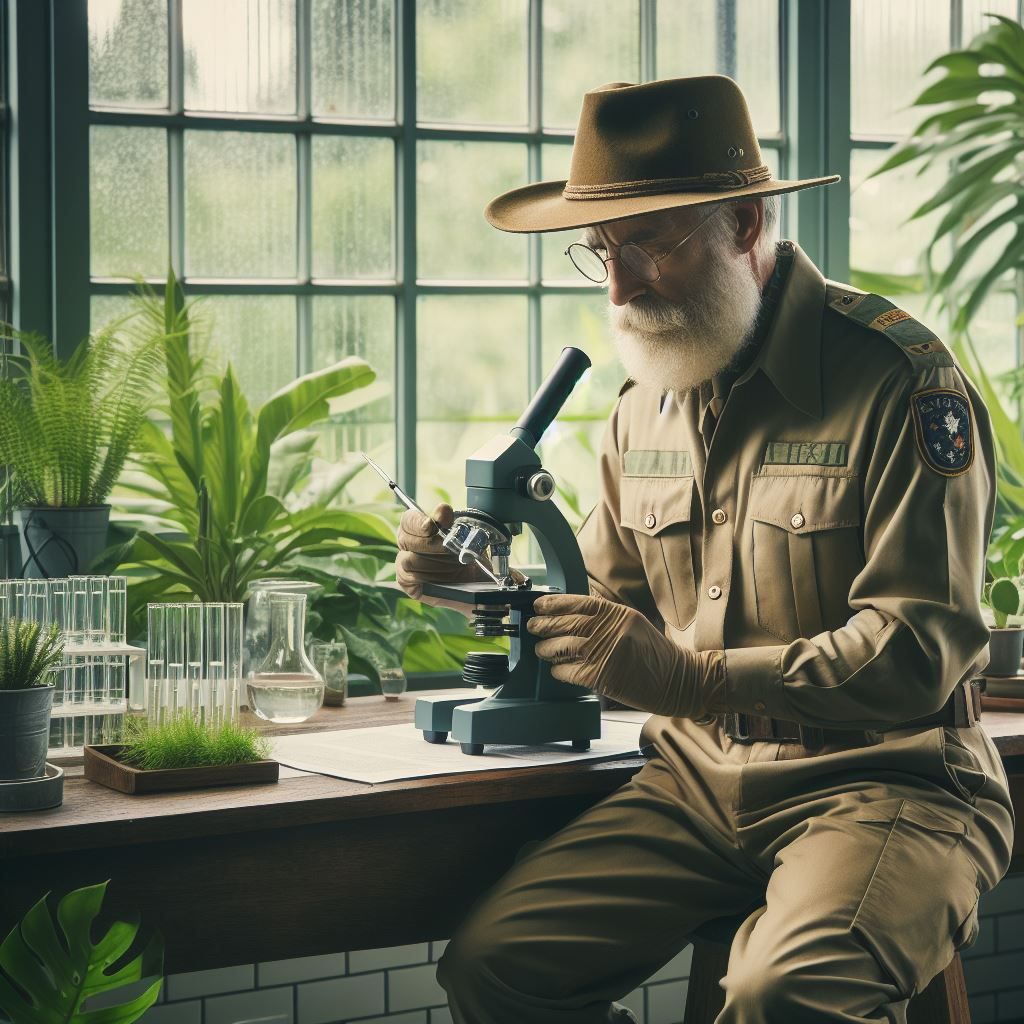Introduction
Women are vital in science; their diverse perspectives drive innovation and progress. However, in Australia, they remain significantly underrepresented in research careers.
- Diversity in science fosters creativity and innovation.
- Women contribute unique insights and perspectives to scientific research.
- Gender equality in science promotes fairness and social progress.
- Encouraging women in science leads to broader societal benefits.
- Despite advancements, women still face barriers in accessing research careers.
- Addressing gender disparities in science is crucial for a thriving scientific community.
- Australia must prioritize efforts to support and empower women in science.
- Through inclusivity and equity, we can unlock the full potential of Australia’s scientific workforce.
- It’s time to bridge the gender gap and ensure equal opportunities for women in research careers.
- Together, let’s champion diversity and pave the way for a brighter, more inclusive future in AU science.
Statistics on Women in AU Science
- The percentage of women working in research careers in Australia is significantly low.
- Recent data highlights the underrepresentation of women in this field.
- Despite progress, there is still a long way to go in achieving gender parity in science.
Recent Improvements and Trends
- Efforts have been made by institutions and organizations to promote and support women in AU science.
- Initiatives like mentorship programs and networking opportunities have been established.
- These efforts aim to break down barriers and create a more inclusive environment for women.
- Government policies have also been introduced to address gender disparities in science.
- More funding is being allocated towards research projects led by women scientists.
- Organizations are actively advocating for equal opportunities and recognition for women in science.
- Representation of women at conferences and scientific events has seen some improvement.
- Studies show that female enrollment in science-related courses has increased in recent years.
Despite these positive trends, challenges persist
- Gender biases and stereotypes continue to hinder women’s progress in scientific careers.
- Women often face difficulties in obtaining research grants and funding.
- Work-life balance remains a challenge, particularly for those pursuing academic careers.
- Underrepresentation of women in leadership positions within the scientific community is a persistent issue.
- Discrimination and unconscious biases impede women’s career advancement opportunities.
Steps to further support women in AU science
- Increase visibility and recognition of women’s achievements in science through awards and accolades.
- Establish mentorship programs to provide guidance and support for young women in science.
- Encourage networking and collaboration among women scientists to foster a strong community.
- Provide access to affordable childcare and family-friendly policies to support work-life balance.
- Offer training and workshops to raise awareness about unconscious biases and promote inclusivity.
- Invest in research and studies to identify and address the specific challenges faced by women in science.
- Promote flexible career paths and opportunities for career progression without sacrificing personal life.
In essence, while there have been improvements in the representation of women in AU science, challenges and disparities still exist.
It is crucial to continue working towards creating a more inclusive and equitable environment for women in research careers.
By addressing biases, providing support, and promoting equal opportunities, we can unlock the full potential of women in science and drive meaningful progress.
Challenges Faced by Women in AU Science
In today’s society, women have made significant strides in breaking barriers and pursuing careers in various fields, including science.
However, women still face numerous challenges and biases when it comes to research careers in Australia. Let us delve deeper into the obstacles that women encounter and the impact these challenges have on their professional lives.
Gender biases
Women often face gender biases in the science field, resulting in fewer opportunities for career advancement. The stereotypical belief that men are more capable in scientific research persists, hindering women from reaching their full potential.
Lack of representation
The underrepresentation of women in leadership positions and research roles further exacerbates the challenges they face.
Limited female role models and mentors can make it difficult for aspiring women scientists to envision their own success and overcome societal limitations.
Gender pay gap
The gender pay gap continues to be a significant issue affecting women in AU science.
Despite having similar qualifications and experience, women are often paid less than their male counterparts, leading to financial inequity and a lack of motivation to excel in their careers.
Work-life balance
Balancing work and personal life is a constant struggle for women professionals. The demands of a research career, including long working hours and the need for extensive travel, often conflict with family commitments and societal expectations.
This imbalance can lead to stress, burnout, and ultimately hinder career progression.
Lack of recognition
Women scientists frequently encounter difficulties in receiving proper recognition for their contributions and achievements.
The male-dominated scientific culture tends to overlook and undervalue the work of women, impeding their professional growth and limiting opportunities for collaboration and advancement.
Implicit biases
Unconscious biases also play a significant role in hindering women’s progress in research careers.
These biases, often deeply ingrained in societal norms, can influence evaluations, promotions, and funding decisions, creating a biased playing field for women scientists.
Limited networking opportunities
Networking is crucial for career advancement in any field, including science.
However, women often face challenges in building professional networks due to exclusion from male-dominated circles, limited access to influential mentors, or discrepancies in networking opportunities.
Lack of support systems
The absence of comprehensive support systems tailored to the unique needs of women in science can hinder their progress.
Initiatives such as mentorship programs, flexible work arrangements, and childcare support can greatly contribute to breaking down barriers and promoting gender equality in research careers.
Imposter syndrome
Women in science frequently battle imposter syndrome, a phenomenon where individuals doubt their accomplishments and fear being exposed as frauds. This psychological barrier can undermine their confidence and hinder their career progression.
Workplace culture
The prevailing workplace culture in the scientific community can be exclusionary and unwelcoming for women.
Securing equal opportunities for career advancement requires addressing ingrained biases, fostering inclusive environments, and promoting diversity at all levels.
While these challenges may seem overwhelming, various measures can be taken to address and combat these obstacles.
Encouraging more women to pursue STEM education, implementing gender-sensitive policies in recruitment and promotion processes, and providing support systems are essential steps towards creating a more inclusive and equitable research environment in Australia.
Your Personalized Career Strategy
Unlock your potential with tailored career consulting. Get clear, actionable steps designed for your success. Start now!
Get StartedIt is crucial to recognize and celebrate the invaluable contributions of women in science, fostering an environment where their talents and expertise can flourish.
By addressing the challenges faced by women in AU science, we can break down barriers, promote gender equality, and ultimately strengthen the scientific community as a whole.
Read: Navigating Chem Grad Studies in Australia
Successful Women in AU Research Careers
The Achievements and Accomplishments of Prominent Women in Science in Australia
In Australia, there have been numerous remarkable women who have made significant contributions to the field of science.
Their outstanding achievements and accomplishments have not only advanced scientific knowledge but have also served as an inspiration for future generations.
Here, we highlight a few extraordinary women and delve into their inspiring stories and the challenges they overcame to excel in their research careers:
- Professor Michelle Simmons: Simmons, a leading quantum physicist, has pioneered research in quantum computing. Her breakthroughs have opened up endless possibilities for technological advancements and she was recognized as the 2018 Australian of the Year.
- Dr. Cathy Foley: Foley is a renowned physicist with expertise in superconductors. She has made significant contributions to the development of applications in defense technology and is the current Chief Scientist at Australia’s national science agency, CSIRO.
- Professor Emma Johnston: Johnston, a marine scientist, has dedicated her career to understanding and protecting marine ecosystems. She is actively involved in science communication and was appointed the first female Dean of Science at the University of New South Wales.
- Dr. Elizabeth Blackburn: Blackburn, an Australian-American Nobel laureate, discovered the molecular nature of telomeres, a critical factor in aging and diseases like cancer. Her groundbreaking research has revolutionized our understanding of cellular aging.
- Professor Suzanne Cory: Cory is a distinguished molecular biologist who has made significant contributions to cancer research. She was the first female president of the Australian Academy of Science and has received numerous honors for her exceptional work.
“Trailblazing Women: Overcoming Challenges in Research Careers”
These remarkable women have faced several challenges on their path to success. Gender bias, lack of representation, and work-life balance issues are some common obstacles they encountered.
Despite these challenges, they persevered, broke barriers, and achieved great heights in their research careers.
By overcoming societal expectations and prevailing norms, they have become trailblazers and role models for aspiring female scientists.
Their stories serve as a testament to the fact that with dedication, passion, and perseverance, women can overcome any hurdles and excel in their chosen field.
“Fostering Inclusion and Empowerment: Supporting Women in AU Science”
As their achievements continue to inspire future generations, it is crucial to create an inclusive environment that encourages and supports women in their scientific pursuits.
Initiatives such as mentorship programs, equal representation in research leadership roles, and supportive policies can play a significant role in enabling women to thrive in research careers.
Ultimately, highlighting the achievements and experiences of successful women in AU research careers not only honors their contributions but also encourages young women to pursue their scientific aspirations fearlessly.
By celebrating their accomplishments, we can create a more equitable and diverse scientific community, ensuring that future generations of women are empowered to make significant contributions to science.
Read: Innovative Chemistry Startups in Australia

Gain More Insights: Australian Enviro Science: Govt vs Private Sector
Opportunities and Support for Women in AU Science
When it comes to promoting and supporting women in the field of science, Australia has implemented various initiatives, programs, and organizations.
These efforts aim to create equal opportunities and encourage women to pursue research careers. Additionally, numerous scholarships, grants, and mentoring programs are available exclusively for women in Australia.
Initiatives, Programs, and Organizations
- Australian Academy of Science: The academy actively works towards gender equity in science by developing strategies and policies to support women.
- Science in Australia Gender Equity (SAGE): SAGE is a national program that aims to improve gender equity and diversity in the science, technology, engineering, mathematics, and medicine (STEMM) fields.
- The Women in STEM Decadal Plan: This plan was established to guide actions that will drive gender equity in the STEM sector over the next 10 years.
- Women in STEMM Australia: This organization aims to connect and empower women in science, technology, engineering, mathematics, and medicine across Australia.
- Association for Women in Science and Engineering (AWISE): AWISE provides opportunities for networking, mentoring, and professional development for women in science and engineering.
These initiatives, programs, and organizations play a crucial role in supporting and promoting women in Australian science.
Scholarships, Grants, and Mentorship Programs
Australia offers a range of scholarships, grants, and mentorship programs exclusively for women pursuing research careers in various scientific disciplines. Some notable opportunities include:
- Women in STEM Ambassador Scholarships: These scholarships are designed to encourage and support female high school students to pursue STEM-related tertiary study.
- Dame Margaret Blackwood Soroptimist Scholarship: This scholarship provides financial assistance to mature-aged women returning to study science or technology.
- Franklin Women Mentoring Program: This program connects early- to mid-career women in health and medical research with experienced mentors to support their professional development.
- Women and Leadership Australia Scholarships: These scholarships provide financial support to women in the STEM sector who are aiming to enhance their leadership skills.
- Science and Innovation Awards for Young People in Agriculture, Fisheries and Forestry: These awards provide funding to young women in rural areas who are conducting research in these fields.
These scholarships, grants, and mentorship programs aim to empower and provide necessary resources for women pursuing research careers in Australia.
Stand Out with a Resume That Gets Results
Your career is worth more than a generic template. Let us craft a resume and cover letter that showcase your unique strengths and help you secure that dream job.
Get HiredOverall, Australia recognizes the importance of supporting and promoting women in the field of science. Through dedicated initiatives, programs, and organizations, they strive to create a more inclusive and equitable environment.
Additionally, the availability of scholarships, grants, and mentorship programs exclusively for women further enhances the opportunities and resources for those pursuing research careers.
With these combined efforts, women in Australian science can thrive and excel in their chosen fields.
Read: Must-Attend Chemistry Conferences in Aus
Steps to Encourage Women in AU Science
Present practical steps and strategies that can be taken to improve the representation of women in research careers:
- Establish mentoring programs to provide guidance and support for women pursuing scientific research.
- Offer scholarships and grants specifically targeted towards women in AU science to encourage their involvement.
- Create networking opportunities and platforms for women scientists to connect with each other and share experiences.
- Develop awareness campaigns to challenge gender stereotypes and promote the accomplishments of women in science.
- Encourage universities and research institutions to actively recruit and hire more female scientists.
- Implement flexible work schedules and family-friendly policies to accommodate the needs of women in research careers.
- Provide training and professional development programs to enhance the skill set of women scientists and boost their career prospects.
- Foster collaboration and interdisciplinary research projects that include women scientists as equal contributors.
- Celebrate the achievements of women in scientific research through awards, recognition, and media coverage.
The importance of mentorship and fostering a supportive and inclusive environment
Mentorship plays a crucial role in empowering women in AU science by offering guidance, advice, and networking opportunities.
A mentor can help navigate challenges, provide career guidance, and offer encouragement during critical stages of a research career.
By fostering a supportive and inclusive environment, women in science feel valued, respected, and motivated to pursue their research careers.
This includes eliminating gender biases, promoting diversity, and offering equal opportunities for growth and advancement.
Supportive networks and communities can create a sense of belonging and inspire women to overcome obstacles and reach their full potential.
The need for equal opportunities and recognition for women in scientific research:
Achieving gender equality in scientific research requires addressing the systemic barriers and biases that hinder women’s progress.
Equal opportunities mean providing fair access to funding, resources, and career advancement. It also involves creating a work culture that values and rewards the contributions of women scientists on an equal footing with their male counterparts.
Recognition for their achievements through awards, grants, and prestigious positions is essential to inspire future generations of women in AU science and break down societal stereotypes.
In a nutshell, improving the representation of women in AU science requires proactive steps such as mentoring programs, equal opportunities, and an inclusive work environment.
By implementing these strategies, we can create a more diverse and equitable scientific research community, unlocking the full potential of women in advancing knowledge and driving innovation.
Read: Australian Women in Chemistry: Trailblazers
Learn More: AU Research: Global Impact Study
Conclusion
Women in AU science and research careers play vital roles. Their contributions drive innovation and progress. Advocating for gender diversity is crucial. Let’s recap the significance of women in AU science:
- They bring diverse perspectives, enhancing problem-solving in research.
- Gender diversity fosters a more inclusive and equitable scientific community.
- Supporting women in science empowers future generations of female scientists.
- Increased representation of women in leadership positions promotes organizational success.
- Gender-balanced teams produce more innovative and impactful research outcomes.
Advocacy efforts must continue to ensure equal opportunities for women in science.
By supporting initiatives promoting gender diversity, we can create a more vibrant and impactful scientific community. Let’s work together to advance women in AU science and unleash the full potential of scientific research for the benefit of all.




